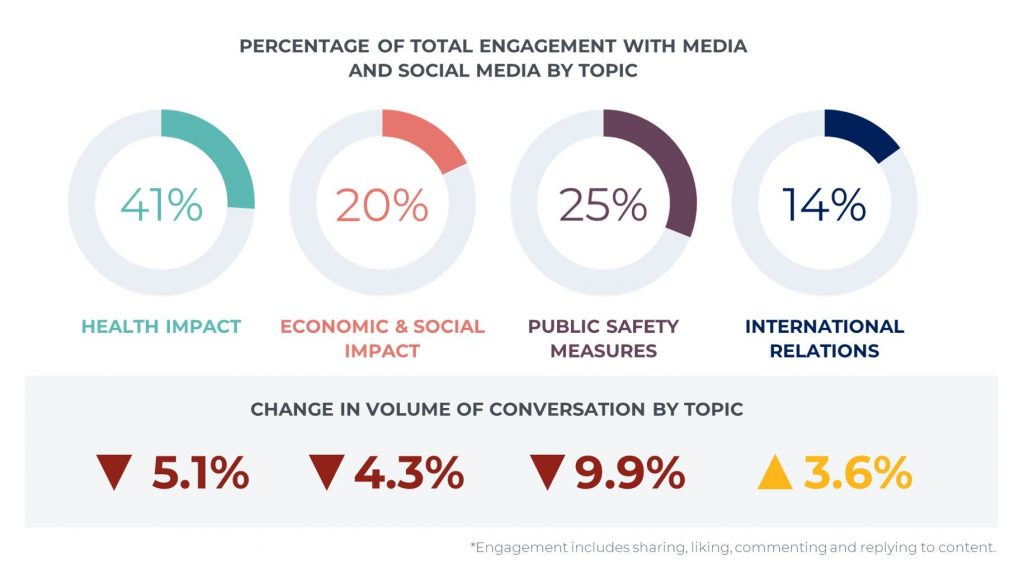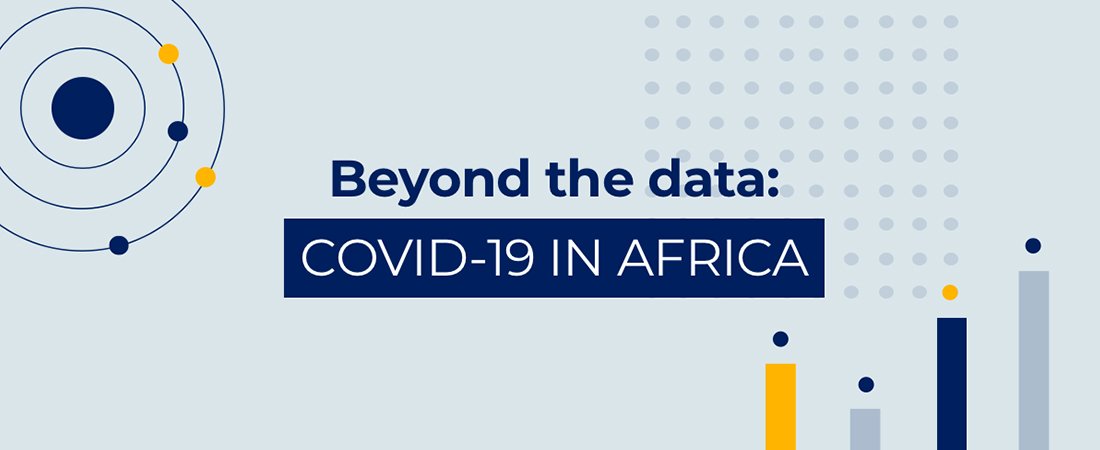The risk of inaction in Africa has revived the global conversation around multilateralism
Our analysis shows one conversation increasing in volume in relation to COVID-19 – international relations in Africa.
Although this theme has not reached the heights of the health impact conversation we saw last week, international cooperation in Africa has generated a clear and significant narrative, following various declarations from African and global leaders.
There can be no doubt that movements from African leaders have coaxed other global heavyweights on board with their calls to action. The G20 member countries announced yesterday they had agreed a debt relief plan for low income nations. In their communiqué, they also called on private creditors to participate in the initiative and asked the IMF and World Bank “to further explore the options for the suspension of debt service payments.”
Consequently, the international economic stimulus plan and the recession warning from the World Bank and IMF have played a big part in this week’s conversation on COVID-19 in Africa.

Urgent calls for relief shift the conversation
As the virus spread into 2020, countries progressively closed their borders. In Africa, Sudan sealed off all seaports, land crossings and airports and Egypt suspended all flights. South Africa put in place a number of travel restrictions on foreign nationals, and Kenya imposed a ban on travel in and out of Nairobi.
Protecting countries through a strong national response and tightening borders was the natural first step but this week’s data shows that isolationism is no longer recognised as the only way forward. Global action and commitment have taken a front seat in the media and social media conversation.
Stark warnings from the World Bank were initially behind this narrative shift. News that the COVID-19 outbreak will plunge sub-Saharan Africa into its first recession in 25 years made waves.
Conversation on this expected recession increased online by 33 per cent globally, and by 400 per cent in Africa.
In the past week, we saw almost 200K engagements around the IMF and Africa, and the conversation around debt and Africa grew by 180 per cent.
Unsurprisingly, the G20’s announcement that it is planning to offer lower income countries a freeze on bilateral government loan repayments was one of the most talked about stories in recent days – and the G20 overall took up 22 per cent of the international relations conversation last week.
A game-changing crisis in Africa’s relationships with the world?
This health crisis could be an opportunity for global relationships to be reshaped.
African leaders are taking this opportunity to make sure their voices are heard. Ethiopian President Abiy Ahmed, Senegalese President Macky Sall and former Nigerian Finance Minister Ngozi Okonjo-Iweala urged G20 leaders to unlock resources and put Africa at the centre of their efforts.
In one of the biggest moves of the week, French President Emmanuel Macron stated that France will reallocate almost €1.2bn of African development aid to the fight against COVID-19. As a result, positive sentiment around Macron in Africa more than doubled last week, pointing to the growing relationship between solidarity and diplomatic soft power.
These unprecedented developments mark the growing recognition of the collaborative efforts needed if we are to emerge on the other side of COVID-19 as unscathed as possible.
Many will now look to see how the US responds in the coming weeks as it continues to position itself as an outlier, with Trump freezing funding to the WHO.
The threat that leaving Africa behind will keep the world in this pandemic is not one that can be easily shrugged off.
No region can win the battle against COVID-19 alone. As world leaders put it, “only victory in Africa can end the pandemic everywhere.”
Portland’s expert Africa team in London and Nairobi will be producing weekly insights during this pandemic – Beyond the data: COVID-19 in Africa – analysing the conversation and policy impact in Africa. Sign up to the updates here.

